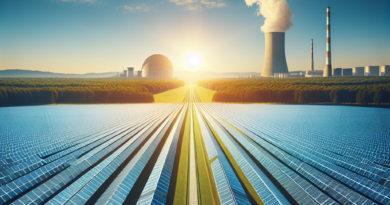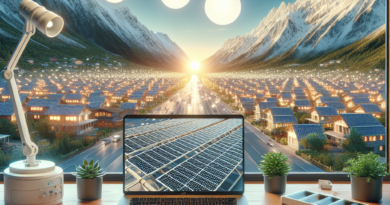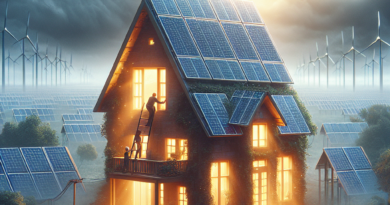These Spheres Are 20 Times More Efficient Than Photovoltaic Cells
The Future of Renewable Energy: Wavja’s Photon Energy System
The technology surrounding renewable energies is constantly evolving, with companies striving to develop more efficient and sustainable systems.
While some focus on improving hydroelectric turbines, others, like Wavja, a subsidiary of Solmet LLC, are delving into enhancing photovoltaic systems.
Wavja has introduced an innovative device called the Photon Energy System, which surpasses traditional photovoltaic cells in terms of efficiency.
These small spheres, ranging from 2.54 to 10.16 centimeters, utilize multi-layered materials to capture solar light and convert it into electricity through a silicon conductor module.
Unlike conventional solar panels limited by weather conditions, the Photon Energy System can operate for 8 hours independently of sunlight, even harnessing artificial light such as LEDs.
This cutting-edge technology not only boasts a compact size, being 30 times smaller than traditional panels, but also delivers 20 times more power output.
Applications of the Photon Energy System
The versatility of the Photon Energy System is reflected in its various applications.
The 3 cm version caters to mobile devices, electric locomotives, flying cars, drones, autonomous taxis, RVs, and other forms of transportation.
For electric vehicles, 9 units are required.
The 6 cm system is suitable for residential buildings, smart homes, public transport, water villas, resorts, heavy-duty trucks, airplanes, electric buses, yachts, and underwater activities.
On the other hand, the 10 cm version finds its place in industrial plants, commercial buildings, scientific parks, desalination facilities, waste plants, power plants, restaurants, amusement parks, and similar structures.
Battery-free Solution
Besides its enhanced efficiency, the Photon Energy System addresses energy storage needs without external batteries.
Each sphere, mounted on a square device, not only converts light into electricity but also stores excess energy within an independent battery system.
Despite its promising features, it is worth noting that the technology is still in its experimental phase.
President Chen hints at further enhancements, possibly leading to a third-generation system capable of generating 100 times more energy than standard solar panels of similar size.
While these innovative spheres show great potential, it is premature to predict their widespread adoption over traditional photovoltaic systems at this stage.
For further information, you can also read here.




